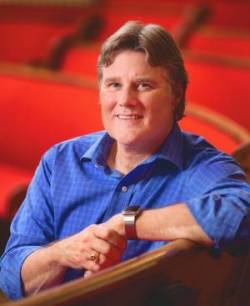Analyze this!
The loss of transcendence
By N. Graham Standish
We are transcendent people trapped in an analytical world. We love to analyze, looking for what’s wrong, what’s broken, what needs to be fixed. Yet we are called to transcendence, looking for what’s right, what’s good, what’s filled with God’s presence and grace.
When people struggle in life, how do we help them? It all depends on the problem. If they have a physical problem, we analyze their symptoms and try to come up with a treatment plan. If they have a psychological problem, we analyze their lives and offer new ways of thinking, behaving, and living. If they have a social problem, we analyze their situation and try to come up with interventions. The key is that we analyze their problems to come up with solutions. Analysis can solve many of life’s problems. But does analysis lead to wisdom?
We’re trained to analyze from an early age. We analyze books for book reports. We analyze math problems, chemical reactions, and history. The further up the education chain we move, the more expert we become in one kind of analysis or another, whether its mechanical, technical, architectural, legal, political, medical, industrial, or even theological. We analytically dissect everything from the struggles of our favorite football team to reviews of concerts, plays, and music. Good analysis leads to wonderful discoveries and solutions, but does it lead to transcendence?
The answer lies in the question. Analysis immerses us in details, making it hard to transcend the trivial. It can become a trap where everything looks like a problem to be solved as we not only lose the forest for the trees, but the universe for the atom.
We can’t avoid using analytical tools in life, nor should we. We just need to be aware that the more we analyze the less we transcend. The great Christian Jesuit mystic and paleontologist, Pierre Teilhard de Chardin, said, “We are not human beings having a spiritual experience. We are spiritual beings having a human experience.” In other words, our foundational nature is transcendent. We live life surrounded by the concerns of this world, while being rooted in an eternal life that transcends this world. The more our perspectives are dominated by analysis, the less aware and awake we are to our transcendent nature. Our years of deconstructing, critiquing, and problem-solving can cause us to become blind to God’s grace and presence blossoming right before us.
The person who aspires to wisdom engages in analysis when necessary, but never forgets to let it be secondary to the insights, inspirations, and perspectives of transcendence. Wisdom immerses us in real life, while intentionally seeking a deeper spiritual life. It employs the methodical and organizational skills necessary for work and home, but embraces the prayerful awareness necessary for life, purpose, and meaning.
Analysis can make us successful. Prayerful awareness can make us transcendent!
The Rev. Graham Standish, Ph.D., M.S.W. (www.ngrahamstandish.org) is senior pastor of Calvin Presbyterian Church in Zelienople, Pennsylvania (www.calvinchurchzelie.org). He is the author of seven books on spirituality and church transformation, and is an adjunct faculty member of Pittsburgh Theological and Tyndale Seminaries. He also has a background as a spiritual director, and as an individual and family therapist.